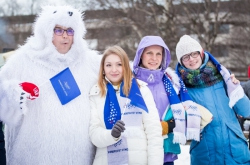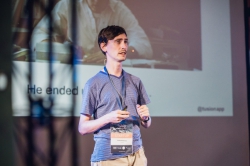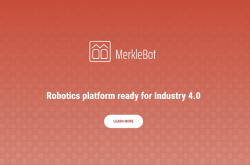The FutureTechnologiesSTART program works in several areas: there's the accelerator for projects that are on their early stages (with a draft prototype or a ready-made technology that is to be made into a commercial product), the pilot mentor programs for working on projects on the seed stage (that already got the product, team and initial financing), the special FTIT program for IT projects, and FT Science that deals with technology-intensive hardware-software solutions.
"The emergence of new fields is natural for an acceleration program's development; this has to do with changes in the business incubator's workflow, as well as trends in the market and interuniversity processes. For instance, after the Institute of Cold and Biotechnology joined ITMO, we started to include projects in the FoodTech field. We believe that when working with projects on the seed stage, the difference in their focus is not that important, as we give their teams basic knowledge and experience in making commercial products from any technologies or ideas," shares Elena Gavrilova, head of ITMO's business incubator.
According to the organizers, the new FT Start program will focus on practice: it won't include any lectures; instead, there will be workshops and practical sessions on every particular aspect of business. Also, the organizers started to regularly invite experts for working on particular topics and training essential skills, like presentation skills and the like. Now, each project has its own personal tutor who helps the team by answering questions, guiding them and solving the problems related to business. This concept was created and implemented by Andrei Myaskov, head of the FT Start program.
"From some 90 teams, we chose 16. The startups now focus on many different fields, as there are more new tendencies in the market. For instance, there's now a demand on products that manufacturers can immediately put into production - many enterprises have the equipment and resources, but lack products, so they are very interested in them," shares Andrei Myaskov.
Statanly
Based on neural networks' functioning, the project is a service for analyzing and visualizing big amounts of data that aims to make corporate clients' work processes easier. Any company, big or small, has gigantic amounts of data. This data may hold consistent patterns that are hard to detect by classical means (for instance, bank transactions that are to be verified). The project's team works on creating instruments for analysing such data. As of now, the service works in the landingpage mode; one can register and get full information on what it offers.
 Sergei Fedorov and his team
Sergei Fedorov and his team
"Our task was to create an infrastructure where any company that uploads its data would get results that can be used for its goals. We have lots of plans. For instance, one of our ideas is an instrument for headhunters: upon uploading an example of a potential employee's work, one can automatically learn his competency level. Another idea has to do with identifying copies and originals of documents that the company stores," comments Sergei Fedorov, the project's head.
LungDiagnostics
This project is also based on neural networks, yet it has to do with a completely different field - breath diagnostics. The project's team works on a device that will help one monitor his or her lung's condition and notify of any respiratory tract diseases.
 Ilya Skorobogatov
Ilya Skorobogatov
"Our device is an electronic stethoscope for lung disease diagnostics that has a "smart" function. It also transfers and stores data for further analysis that can be done by a human doctor. Now, doctors conduct examinations every 4-6 days, which is too long a period when diagnosing fast-developing chronic diseases. Using our device, one will be able to examine his or her lungs on an everyday basis and know the results without consulting a doctor. What's more, a doctor will be able to see how the disease progressed by using data collected by our device. The "smart" function has already been tested –as of now, it defines diseases with a 92% accuracy. Our final goal is to teach the system to define diseases better than a doctor does manually - we plan to achieve it by working with a wider range of frequencies," explains Ilya Skorobogatov.
Soon, the team will also add a TelegramBot that will respond to the program’s users - one will be able to connect the device to a smartphone so as to send data.
3dprinterforkids
ITMO's graduate Stanislav Pimenov presented a project on producing special 3D printers for children.
 Stanislav Pimenov
Stanislav Pimenov
"The printer is really quiet and compact, with a good design; what's more, it prints itself in any color the client wants. The most important thing is the instructional ecosystem, though. It often happens that people buy a printer and then don't know what to do with it, let alone use it for teaching children. Apart from printer production, I work on the instructional ecosystem as well. As of now, several lessons on 3D modeling for children come with the printer," shares Stanislav Pimenov.
The printer's price is comparably low and is about 30,000 rubles. Anyone can already order it on the project's website; as of now, Stanislav already sold four.
Revolver
This startup is also about producing 3D printers, yet its idea is to automatize the device's operation. As of now, the project's team created the first prototype they use to hone the new technology.
 Maksim Lerman
Maksim Lerman
"A common 3D printer needs an operator; his common task would be to take the ready items and launch the production of new ones. Our device can do this by itself. This way, we cut the costs and make printing cheaper. At first, we will be developing as a service by providing 3D printing at cheaper prices; and in the future, we hope to start selling theprinters themselves" shares Maksim Lerman, the project's head.
GHOSTSPECTER
This is a platform for producers and DJs where the customers - the DJs - can buy or order tracks from producers. The main idea is that producers create tracks specifically for their customers. That will allow DJs to buy tracks they want and not choose from what's offered only - the project focuses on a more close collaboration between them and producers.
"DJs often find it hard to find the producer they need. Sure, our project is narrow-focused, but the market is quite big. Electronic music is not really popular in Russia, so we focus on the European market, as European DJs are ready to pay good prices for tracks that Russian producers can create on a high level," shares Dmitry Litvinchuk.
Ecology in a box
This project offers a technology for growing mushrooms on coffee-grounds usually thrown away by thousands of cafes and restaurants all over the city.
 Alena Nikoleva
Alena Nikoleva
"We plan on working with restaurants: they will gather coffee grounds for us to take. Then, we will use it as a base for creating mushroom growing kits. Those may be of interest to people who want to choose an original gift for someone or parents who can teach their children about nature. There are companies abroad that sell both mushrooms and mushroom growing kits; there are similar kits in Russia, too, but they use different materials: mostly hay or husk," explained Alena Nikoleva.
S&R Systems
The project offers a complete cycle of laboratory equipment development, manufacturing, and sales. One of its major lines of work is producing membranes used for concentrating organic solvents and clearing them from water and impurities in a relatively short time. Apart from membranes, the team works on chemical reactors that can be used in laboratories.
 Denis Sapegin
Denis Sapegin
"We focus on developing innovative laboratory equipment. As of now, we already work with several major customers. For instance, we conduct research on membranes for one of the leading manufacturers of strong alcoholic drinks - Permalko. We also manufacture equipment for the BIOCAD international biotechnology company. In future, we are going to work on methanol detectors as well," shares Denis Sapegin, the startup's head.
Universal Laboratories
This is on online platform where a person who has a specific task can consult a competent specialist or find equipment to conduct the corresponding research, or solve a manufacturing problem. According to its developers, the system is free and connects scientific laboratories and industrial companies.
 Roman Belih
Roman Belih
"We are going to take money from those who have it - offer additional services for business entities that want to conduct research fast, on a paid basis. As for things like complementary research between laboratories, those can use our service free of charge. Surely, we understand that any business can disguise itself as a laboratory; yet, they have different interests. Business entities would require certificates, agreements, financial reports, when laboratories can work based on verbal arrangements. One of the project's goals is to promote collaboration between laboratories, as we believe that laboratories in Russia are too isolated, and that inhibits the progress of science and science-driven business in our country," comments Roman Belih.






